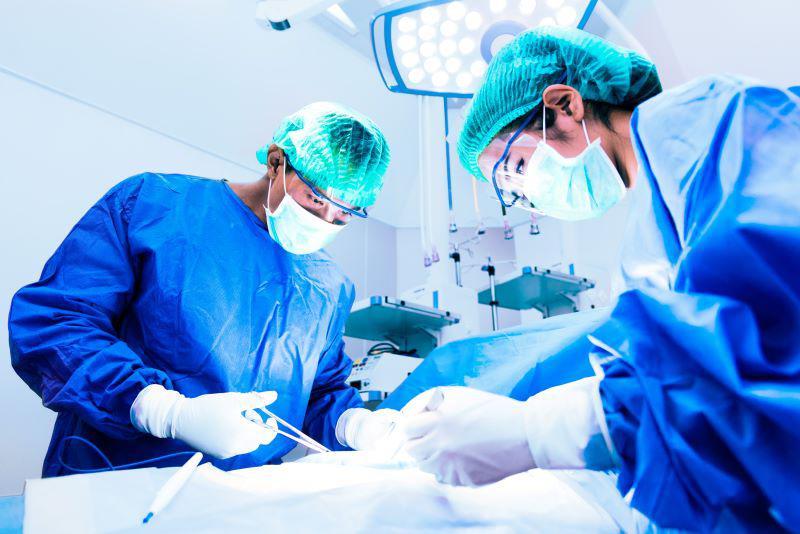
People taking weight-loss drugs like Ozempic and Wegovy need to drop them in the days or weeks prior to surgery, a new study warns.
Folks on one of these drugs — known as GLP-1 receptor agonists — have a 33% higher risk of developing pneumonia by breathing in their own vomit during surgery, researchers found.
“Aspiration during or after endoscopy can be devastating,” said researcher Dr. Ali Rezaie, medical director of the GI Motility Program at Cedars-Sinai Medical Center in Los Angeles.
“If significant, it can lead to respiratory failure, ICU admission and even death,” Rezaie said. “Even mild cases may require close monitoring, respiratory support and medications including antibiotics. It is important we take all possible precautions to prevent aspiration from occurring.”
People are typically asked to fast prior to surgery because general anesthesia can cause nausea, and they might inhale and choke on their own vomit.
Unfortunately, part of the way that GLP-1 receptor agonists help prompt weight loss is by slowing the digestion process, researchers said. That means it takes longer for food to pass through the stomach.
These results jibe with guidance issued last year by the American Society of Anesthesiologists that calls for screening for weight-loss drug use before surgery, and informing patients of the risks involved.
Further, another study published earlier this month in the journal JAMA Surgery found that about 56% of people taking these drugs still have significant amounts of food in their stomach at the time of surgery.
For this latest study, researchers analyzed the data from nearly 1 million U.S. patients who underwent an endoscopy between January 2018 and December 2020. Endoscopies involve long flexible tubes inserted into the mouth or anus, through which doctors can examine the GI tract for signs of illness.
They found that people on the weight-loss drugs had a 33% greater risk of aspiration pneumonia.
The new study was published March 27 in the journal Gastroenterology.
“When we apply this risk to the more than 20 million endoscopies that are performed in the U.S. each year, there may actually be a large number of cases where aspiration could be avoided if the patient safely stops their GLP-1RA medication in advance,” Rezaie said in a Cedars Sinai news release.
“The results of this study could change clinical practice,” said lead researcher Dr. Yee Hui Yeo, a clinical fellow in the Karsh Division of Gastroenterology and Hepatology at Cedars-Sinai. “Patients taking these medications who are scheduled to undergo a procedure should communicate with their healthcare team well in advance to avoid unnecessary and unwanted complications.”
More information
The University of Iowa has more about fasting prior to surgery.
SOURCE: Cedars-Sinai Medical Center, news release, March 27, 2024
Source: HealthDay

Leave a Reply